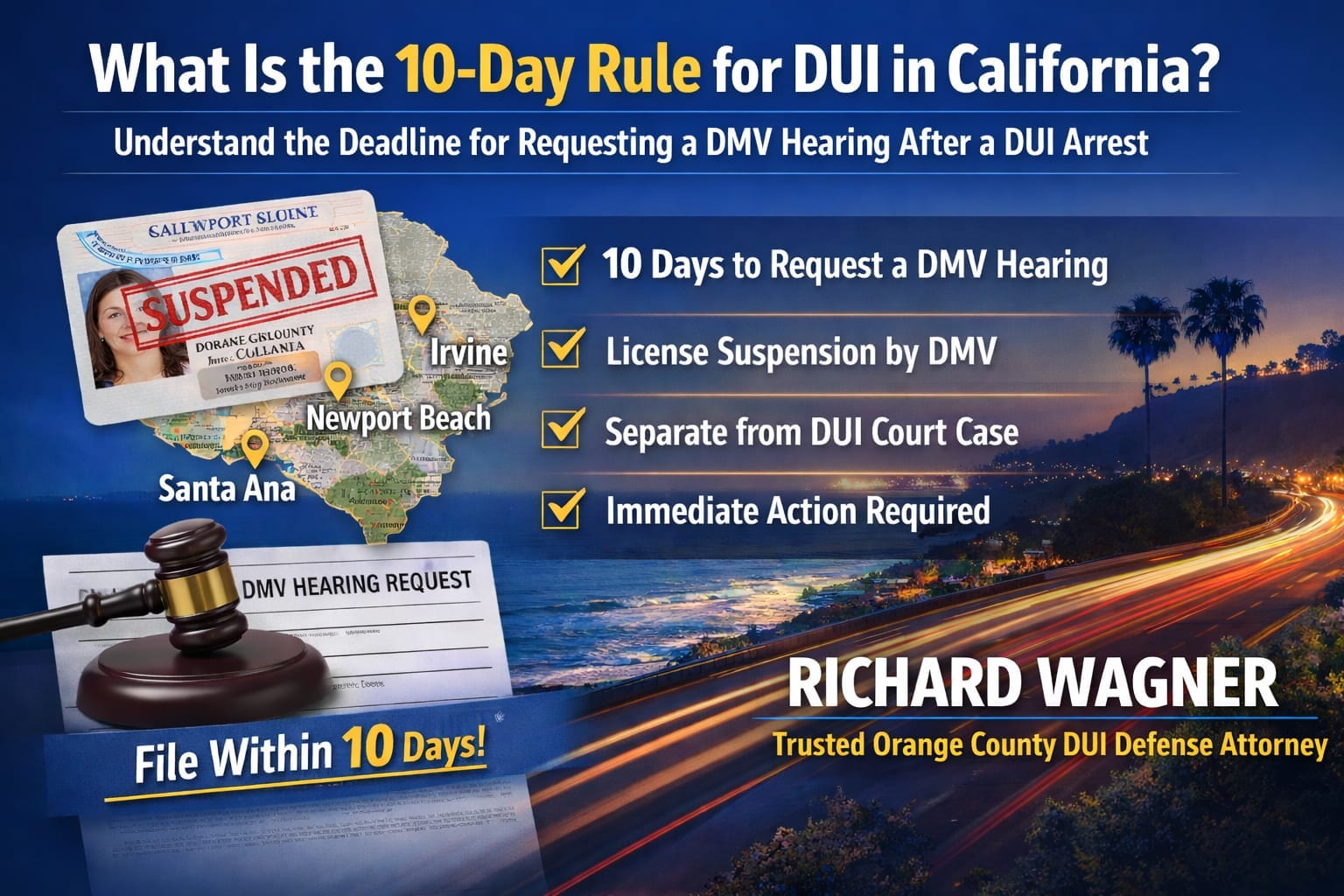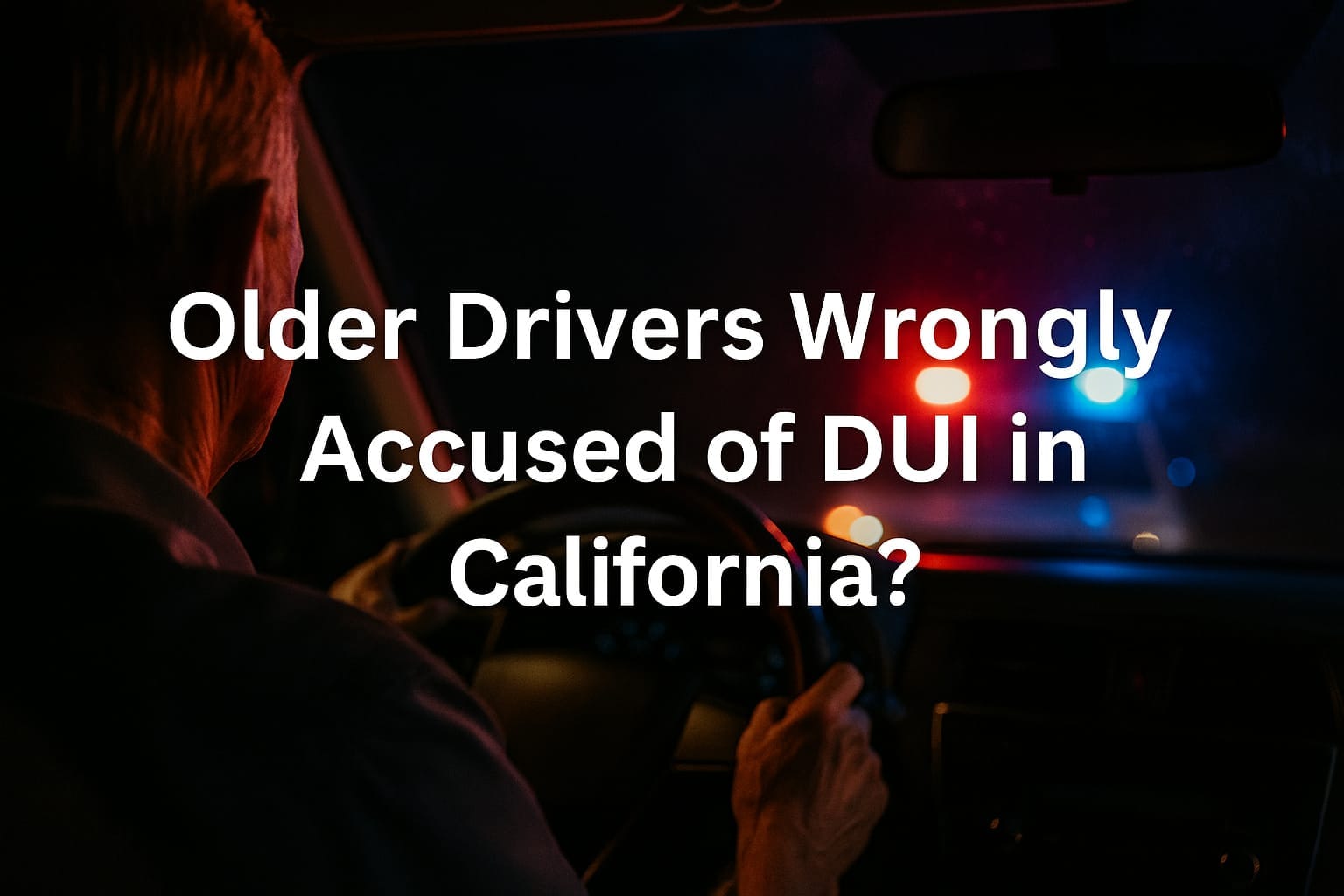In California, DUI charges are serious and carry significant consequences if convicted. California has rules laboratories and police must follow when investigating DUI cases.
The Department of Public Health adopted rules or regulations found in Title 17 of the California Code of Regulations. These rules are important to ensure fairness and protect the rights of the accused.
These regulations outline law enforcement’s breath and blood testing procedures.
The rules ensure evidence is collected properly so test results are reliable. This helps to prevent false positives and unjust convictions.
Prosecutors use chemical test results to convict you of Vehicle Code Sections 23152 and 23153. This code is for driving under the influence and with a BAC of 0.08% or higher. If the cops or crime lab did not follow the regulations in Title 17, the evidence is flawed.
A skilled DUI Defense Attorney examines the evidence against you for Title 17 violations. This helps clients facing DUI charges in California.
They can persuade a jury to vote not guilty at trial. They can also negotiate a plea deal for lesser charges. Another option is to have the DUI charges dismissed.
This is why it is important to have an experienced Orange County DUI attorney on your side. They carefully check how law enforcement handles your blood or breath tests. This is to make sure they follow Title 17 rules. If not, this could provide the leverage needed to win your case.
What is Title 17?
Title 17 of the California Code of Regulations explains how to handle breath and blood samples in DUI cases. This includes collecting, analyzing, and preserving breath and blood samples.
These rules are important because they make sure the results are accurate and reliable. This accuracy is vital for DUI evidence. The main components of Title 17 relevant to DUI investigations include:
- Breath Tests: Title 17 requires that breath testing instruments be properly maintained and calibrated. There are also rules for giving the test, such as observing the driver for at least 15 minutes before the test.1 They must check the breath testing machine for accuracy every ten days or after 150 uses, whichever occurs first.2 Read about Understanding Breath Tests in California
- Blood Tests: Blood samples shall be collected as soon as feasible after an alleged offense.3 Alcohol shall not be used to clean the skin.4 The blood shall be mixed with an anticoagulant and a preservative.5 The sample shall be retained for one year after the date of collection.6 Read about Understanding Blood Testing in California
When law enforcement shirks its responsibility and does not follow these rules, it creates reasonable doubt. It makes people—the jury—question the evidence against the accused.
What are Title 17 Violations?
Some common Title 17 violations during DUI investigations in Orange County and surrounding areas.
- Failure to Maintain Breathalyzer: Technicians must regularly check breath testers to ensure they provide accurate readings. Title 17 has strict timing (every ten days or 150 uses, whichever comes first) and record-keeping requirements.
- Insufficient Observation Period Before Giving The Breath Test: The officer must observe you for at least 15 minutes before collecting the breath sample. The police train to watch for signs of eating, smoking, burping, or regurgitating. These things contaminate the breath sample and inflate the BAC result. Getting the body-worn camera footage helps to see if the officer was observing you or distracted.
- Improper Collection and Handling of Blood Samples: Title 17 sets clear rules for blood samples. A licensed professional must draw your blood. They must preserve the blood with the proper chemicals. They must store your blood in the right type of tube.7 Violations occur when your blood is mishandled and stored incorrectly, contaminating the sample.
- Sloppy Record-Keeping and Documentation: Title 17 requires records for all chemical test procedures and quality control programs. This includes up-to-date written descriptions of each method used to test your sample8, instrument calibration procedures, accuracy and maintenance logs, training records, and records of laboratory performance evaluation. Violations happen when these records are incomplete, inaccurate, or missing.
What are some tactics for Title 17 failures?
Your DUI case probably has a breath or blood test result. Some cases have both. In either case, you need a California DUI defense lawyer. They can scour the evidence and look for Title 17 violations and question the results.
If your attorney discovers violations, doubt clouds the accuracy of the BAC results. This might make the prosecutor agree to a plea deal for a lesser charge. Read About Wet Reckless
A Title 17 violation can result in a jury finding the defendant not guilty at trial. It can also lead the prosecutor to drop the charges completely. This shows how much these violations can affect the outcome of a DUI case.
If the police arrest you for a DUI, seek help from a skilled DUI lawyer. They can review your case for possible Title 17 violations. Your attorney may use various strategies to challenge the accuracy and reliability of chemical test results, such as:
- Expert Witnesses: Your lawyer may consult with experts. The reason The Law Office of Richard Wagner is known as the Criminal Defense Strikeforce is because Attorney Wagner works with expert witnesses, the finest consultants, and front-line private investigators to deliver a powerful defense. They will explain the right ways to do chemical tests. They can emphasize the failures in following the rules.
- Chain of Custody: Your lawyer might discover gaps or missing parts in the chain of custody. Where did your blood go after it was collected by the blood tech? Did the officer take it and book it into evidence? Was it refrigerated? When did it get to the lab? When and who removed it from evidence? This could raise doubts about the evidence’s integrity and authenticity.
- Blood samples: Problems arise when someone does not handle or store them properly.9 Did the police correctly label your blood tube with all the required information? Your lawyer can use this as a defense.
Title 17 violations are a valuable weapon in the DUI Defense Attorney’s arsenal to fight your DUI case.
Contact The Law Office of Richard Wagner, A Professional Corporation, for additional information at 714-712-4423.
- DUI Defense Attorney
- DUI, Stress, and Mindfulness
- Felony DUI – DUI Causing Injury
- Orange County DUI Attorney
- Understanding BAC
AUTHORITIES
1 17 CCR 1221.1(b)(1) The breath sample shall be collected only after fifteen continuous minutes during which time the subject must not have ingested alcoholic beverages or other fluids, regurgitated, vomited, eaten, or smoked.
2 17 CCR 1221.2 (a)(2)(B) For the purposes of such determinations of accuracy, periodic” means either a period of time not exceeding 10 days or following the testing of every 150 subjects, whichever comes sooner
3 17 CCR 1219.1(a) Blood samples shall be collected by venipuncture from living individuals as soon as feasible after an alleged offense …
4 17 CCR 1219.1(b) Alcohol or other volatile organic disinfectant shall not be used to clean the skin where a specimen is to be collected.
5 17 CCR 1219.1(d)(2) The blood shall be mixed with an anticoagulant and a preservative.
6 17 CCR 1219.1(f) In order to allow for analysis by the defendant, the remaining portion of the sample shall be retained for one year after the date of collection.
7 17 CCR 1219.1(d) The blood sample shall be deposited into a clean, dry container which is closed with an inert stopper.
8 17 CCR 1220(b) Each forensic alcohol laboratory shall have detailed, up-to-date written descriptions of each method it uses for forensic alcohol analysis.
9 17 CCR 1219 Samples taken for forensic alcohol analysis shall be collected and handled in a manner in which the identity and integrity of the samples shall be maintained through collection to analysis and reporting.


